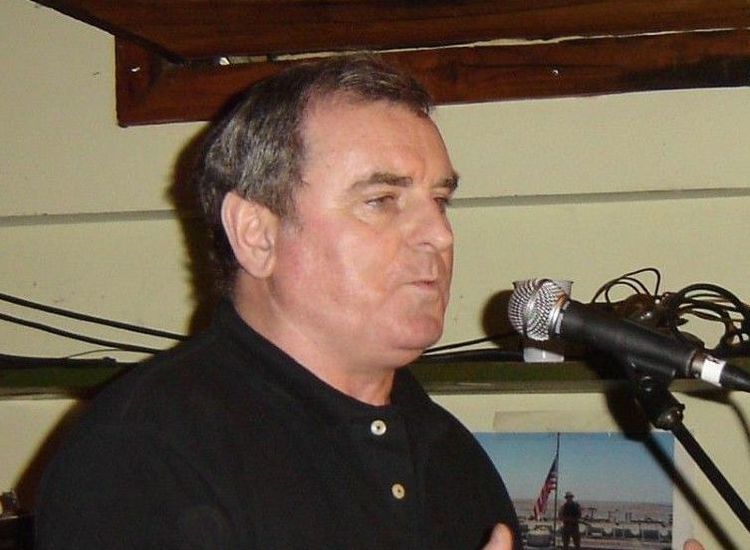The fourth volume of the letters of Samuel Beckett covers the last 23 years of his life.
By Kevin Holohan
“The Letters of Samuel Beckett: Volume 4, 1966-1989,” edited by George Craig, Martha Dow Fehsenfeld, Dan Gunn, and Lois More Overbeck. Published by Cambridge University Press in hardcover; $47.95; 942 pp.
“Let me say before I go any further that I forgive nobody. I wish them all an atrocious life and then the fires and ice of hell and in the execrable generations to come an honored name,” says the narrator of “Malone Dies,” the second in Samuel Beckett’s great trilogy of novels. The vengefulness of this utterance in no way characterizes Beckett but the curse of an honored name is at the core of this, the fourth and last volume his letters, covering the period from 1966 until his death in 1989. The collection opens with the rumblings of the impending Nobel Prize for Literature: “I want no part in this award.” When it is awarded to him he sends a telegram to Jérôme Lindon, his French publisher, from his bolthole in Tunisia: “Please pass on to the Swedish Academy how keenly aware I am of the honor done to me and assure them of my deep gratitude. I regret profoundly that I cannot be with you on ten December and dare hope that his Royal Highness will not judge me too harshly.”
The breadth of research and careful scholarship in the four volumes of these letters is astounding. Volume 4 contains the letters in which Beckett authorizes Martha Dow Fehsenfeld, one of the four editors, to perform the “unspeakable job” of editing and publishing his letters with the proviso that they are limited to “those passages only having bearing on my work.” It is a testament to the editorial care that these letters shed so much light on the work and on the man, all without any hint of prurience or sensationalism.
This collection illustrates Beckett’s efforts to balance the competing demands of writing new works, vetting production requests, directing his own theater works, while dealing with everyday correspondence. Through these letters we come to see Beckett’s deep loyalty and generosity to his friends.
Repeatedly we see him trying to write new work for his publishers to help them out or for his favored performers like Patrick Magee, Billie Whitelaw, or Rick Cluchey of the San Quentin Drama Workshop, for whom he was prepared to go to extraordinary lengths: "whatever I have still to offer is yours, with a heart point five. But please understand it no longer amounts to much." He has the proceeds of “All Strange Away” sent to Jack MacGowran’s widow. The "preposterously expensive” limited edition “Stirrings Still” is written for his U.S. publisher Barney Rosset after he loses Grove Press in a takeover.
Beckett’s kindness to researchers, directors, translators, fellow writers and unknown admirers who contact him is also striking (as long as they don’t ask him to explain his work). When a troubled young man, greatly influenced by Beckett, sends him his harrowing poems, he counsels: “take yourself away from my work and from yourself.”
“Nothing matters but the writing. There has been nothing else worthwhile... a stain upon the silence.” Beckett struggled to write and struggled to stop but never could. It was, in his own words, "All I'm good for," a quote lent added poignancy by recurrent thoughts like this: “What blunders all the way. Why didn't I go into Guinness's as father wished?" Ruby Cohn writes: "letter just received announces a new work in the making (He calls it struggling), and he is so miserable in it that I foresee a major advance.” Of the early work on what would become “Ill Seen Ill Said” he says: "struggling with new work and hating it. The work not the struggle.”
Beckett, it seems, answered every letter he ever received. This took up a lot of his time yet he always had his mail forwarded to wherever he was. As co-editor Dan Gunn points out in his insightful introduction, while the letters took away writing time, it is almost as if they also kept the wheels turning and helped him to write, to tease out his ideas. On occasion, he even sends the beginnings of new work to trusted allies.
Beckett’s uneasy relationship to place is evident throughout. Paris is “fumes hubbub, meetings & old blather" and yet “for all its shortcomings is like nothing else.” He seems to simultaneously need yet dread time at his little house in Ussy. Throughout his life Beckett’s relationship with Ireland was ambivalent. The pull/push continues right to the end. On returning from Ireland after a family funeral in 1968 he writes to Pamela Mitchell: “The sea and mountains were looking marvelous. I was glad to get back here, out of their clutches.” He refers to haunting old haunts. In 1975 he comments on his cousin John Beckett’s Wicklow hike: “That was a great jaunt over the old ground. I wish I had been with you.”
Beckett was no secular saint and could be funny and scathing, particularly of offensive productions of his work. He takes relish in relaying a friend’s assessment of the 1970 Abbey Theatre production of “Waiting for Godot” as "appalling and O'Toole-ridden beyond redemption.” Of Dante, whose work Beckett read and reread throughout his life, he says of him complaining about the immodesty of Florentine women: “Was ever a poet more ballsaching?” If there is one moment in the events that he mentions that I would love to have witnessed, it is this: “The postman stopped me in the street to ask my opinion of grammar which his 12-year-old nephew was questioning the value of, French grammar. I defended it warmly.”
41thdmxhdzl-_sx315_bo1204203200_
Beckett is widely regarded as one of the most influential writers of the 20th century yet suffers from a reputation for difficulty which may wrongly deter many who would greatly enjoy his work. He downplays his literary allusions. He calls them "bits of pipe I happen to have with me." So too should the reader. These volumes of letters can help the reader hear the voice behind the works, to truly hear the music of the work, the hard truths and unwavering honesty about the human condition.
These least ill-chosen words I can contrive barely scratch the surface of the riches of these letters. All too often I had to stop myself reading every footnote and reference or burying myself in the works mentioned to stay on tack. A Beckett nut since my late teens, I found the letters in the last years terribly moving as he almost becomes the old men of his earlier writings and the drive to write persists while the energy to do so fades and finally deserts him: "Very dim & dumb these days." In May 1979 he tells Mary Manning Howe: “I hope words have now failed me.”
I wonder what he would have made of our “filthy times.” I think of the recent Irish Times report of the Irish Naval Service vessel, the LE Samuel Beckett, rescuing 242 refugees in the Mediterranean. I can imagine acute embarrassment at the “honor” having a boat named after him, a great sadness at the need for the fleeing and some small glimmer of hope for the humanity of the rescue punctuated with a sorry shake of the head. His work remains painfully, poignantly relevant and true.
Dublin-born Kevin Holohan is the author of the novel “The Brothers’ Lot.” He has read from the poetry and prose of Samuel Beckett at the Irish Arts Center, An Beal Bocht Café in the Bronx, Brooklyn Library’s Dweck Center and at Dixon Place in Manhattan. He is at work on his second novel.










